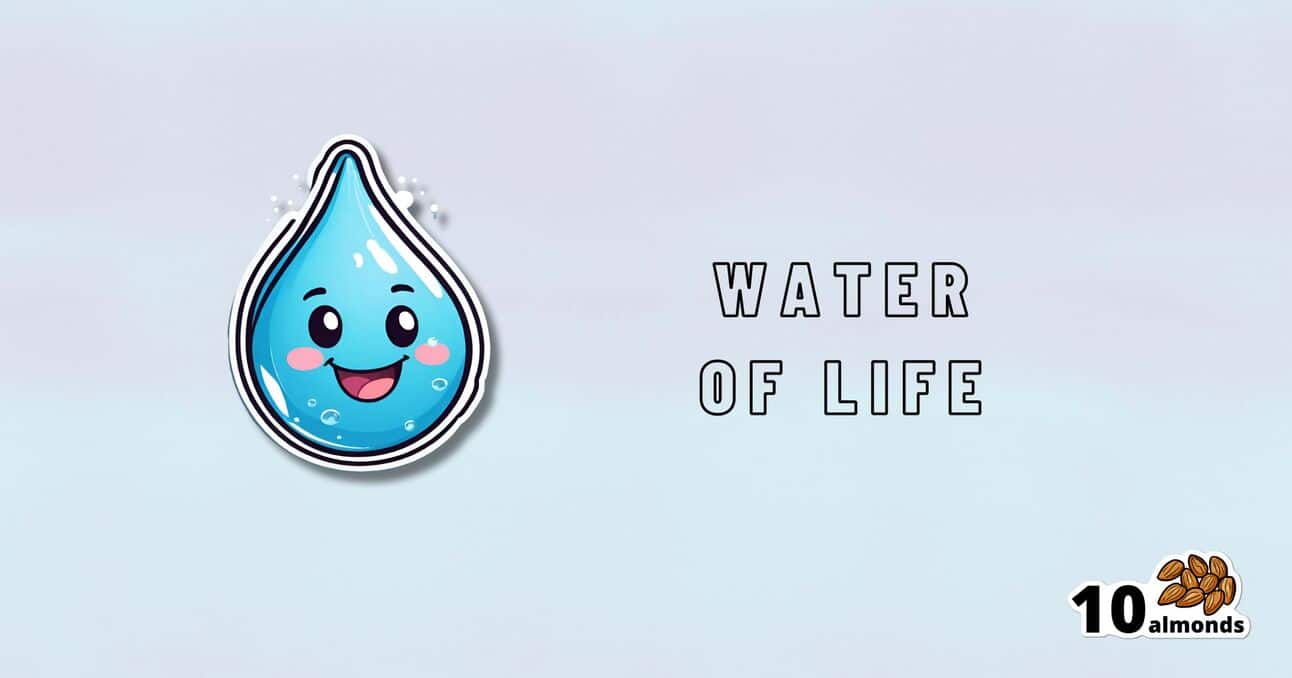Water’s Counterintruitive Properties
Thirsty for answers? 10almonds’ Q&A tackles hydration—debunking myths, revealing the truth about water’s role in bloating, diarrhea, and runny noses. Stay informed and hydrated!

It’s Q&A Day at 10almonds!
Have a question or a request? We love to hear from you!
In cases where we’ve already covered something, we might link to what we wrote before, but will always be happy to revisit any of our topics again in the future too—there’s always more to say!
As ever: if the question/request can be answered briefly, we’ll do it here in our Q&A Thursday edition. If not, we’ll make a main feature of it shortly afterwards!
So, no question/request too big or small 😎
❝Why are we told to drink more water for everything, even if sometimes it seems like the last thing we need? Bloated? Drink water. Diarrhea? Drink water. Nose running like a tap? Drink water❞
While water will not fix every ill, it can fix a lot, or at least stop it from being worse!
Our bodies are famously over 60% water (exact figure will depend on how well-hydrated you are, obviously, as well as your body composition in terms of muscle and fat). Our cells (which are mostly full of mostly water) need replacing all the time, and almost everything that needs transporting almost anywhere is taken there by blood (which is also mostly water). And if we need something moving out of the body? Water is usually going to be a large part of how it gets ejected.
In the cases of the examples you gave…
- Bloating: bloating is often a matter of water retention, which often happens as a result of having too much salt, and/or sometimes too much fat. So the body’s homeostatic system (the system that tries to maintain all kinds of equilibrium, keeping salt balance, temperature, pH, and many other things in their respective “Goldilocks zones”) tries to add more water to where it’s needed to balance out the salt etc.
- Consequently, drinking more water means the body will note “ok, balance restored, no need to keep retaining water there, excess salts being safely removed using all this lovely water”.
- Diarrhea: this is usually a case of a bacterial infection, though there can be other causes. Whether for that reason or another, the body has decided that it needs to give your gut an absolute wash-out, and it can only do that from the inside—so it uses as much of the body’s water as it needs to do that.
- Consequently, drinking more water means that you are replenishing the water that the body has already 100% committed to using. If you don’t drink water, you’ll still have diarrhea, you’ll just start to get dangerously dehydrated.
- Runny nose: this is usually a case of either fighting a genuine infection, or else fighting something mistaken for a pathogen (e.g. pollen, or some other allergen). The mucus is an important part of the body’s defense: it traps the microbes (be they bacteria, virus, whatever) and water-slides them out of the body.
- Consequently, drinking more water means the body can keep the water-slide going. Otherwise, you’ll just get gradually more dehydrated (because as with diarrhea, your body will prioritize this function over maintaining water reserves—water reserves are there to be used if necessary, is the body’s philosophy) and if the well runs dry, you’ll just be dehydrated and have a higher pathogen-count still in your body.
Some previous 10almonds articles that might interest you:
- Hydration Mythbusting
- When To Take Electrolytes (And When We Shouldn’t!)
- Keeping Your Kidneys Healthy (Especially After 60)
Would you like this section to be bigger? If so, send us more questions!
Share This Post
Learn To Grow
Sign up for weekly gardening tips, product reviews and discounts.




